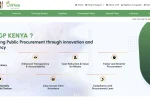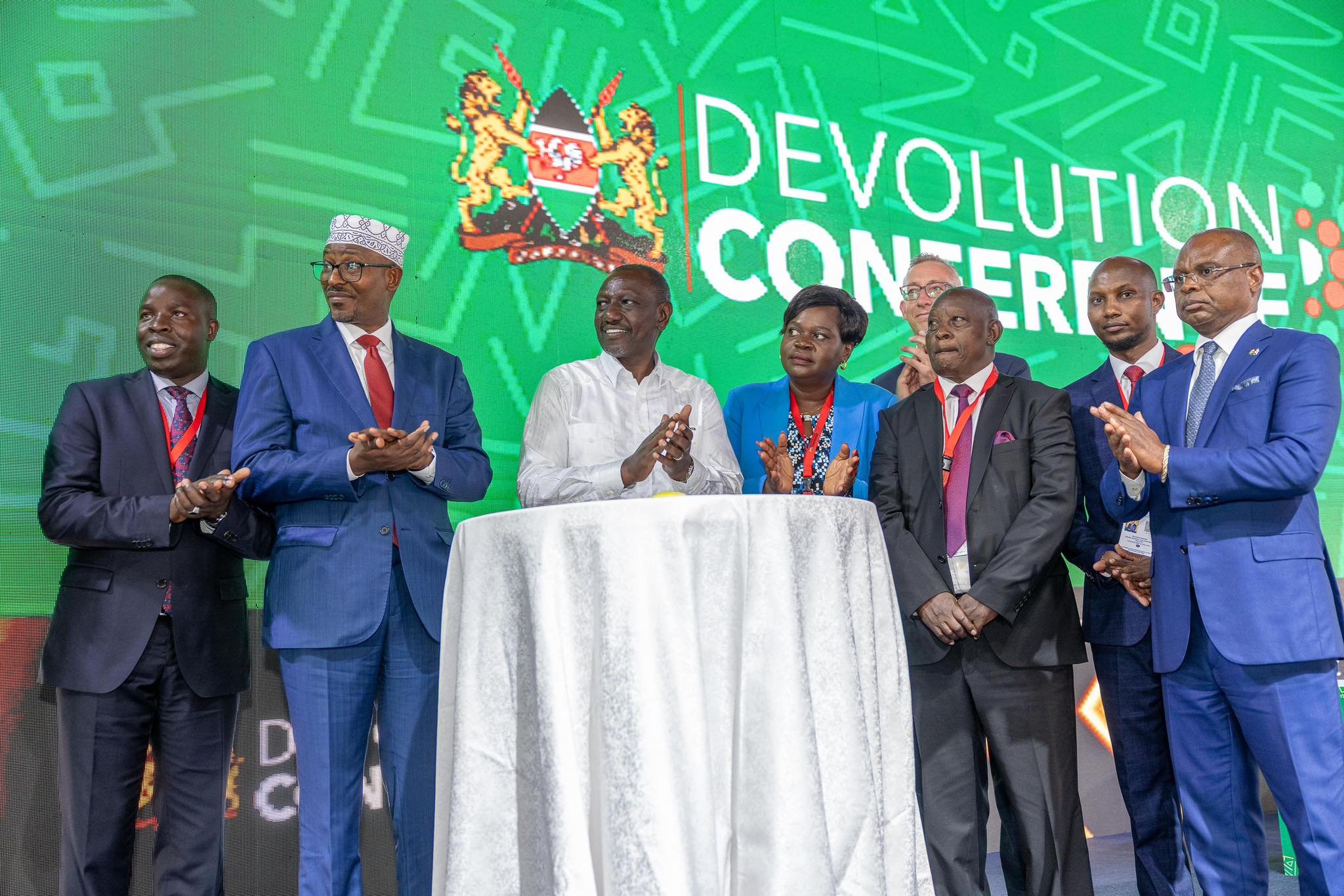The 9th Devolution Conference at Homa Bay High School, has crystallised Kenya’s ongoing push for deeper devolution, with leaders calling for the transfer of more functions and resources to counties.
Anchored on the theme “For the People, For Prosperity: Devolution as a Catalyst for Equity, Inclusion, and Social Justice,” and the sub-theme “Re-engineering County Governments to Accelerate Development and Close the Socio-Economic Divide,” the conference has spotlighted a historic milestone: the complete transfer of all 14 devolved functions to Kenya’s 47 counties.
Yet, the clarion call for increased funding and authority dominated discussions, with leaders like former Prime Minister Raila Odinga and governors articulating bold visions for devolution’s future.
The conference celebrated the full devolution of 14 functions, including healthcare, agriculture, water, infrastructure, and education, resolving long-standing jurisdictional disputes between national and county governments.
This achievement, coupled with a Sh30 billion increase in county funding, was hailed as a turning point.
Homa Bay Governor Gladys Wanga emphasised the need for fiscal alignment, stating, “Funds must follow devolved functions. We must restructure national line ministries to release resources so counties can deliver on their mandates.”
Her remarks underscored a central concern: without adequate funding, counties risk being overburdened by their expanded roles.
President William Ruto’s remarks at the conference framed devolution as a cornerstone of Kenya’s Bottom-Up Economic Transformation Agenda (BETA).
He highlighted its role in promoting equity and inclusion, stating, “This year’s theme speaks directly to our National Vision. A Kenya where every citizen, regardless of region, gender, background, or status, has a fair and equal opportunity to thrive.”
Ruto urged counties to leverage their new mandates responsibly, noting, “With this new mandate, the counties have no reason or excuse not to do what they have been mandated to do by the Constitution.”
He also called on county assemblies to enhance oversight, adding, “I now ask the county assemblies to effectively undertake their responsibilities and provide proper oversight.”
Ruto also addressed governance challenges, particularly corruption, accusing parliamentary committees of turning into “extortion rings” that demand bribes for favourable reports.
“There is money being demanded from the Executive, governors, and ministers, especially those who go for accountability before our Houses of Parliament,” he said, urging the Speakers of the Senate and National Assembly to act.
He further criticised the Judiciary for granting anticipatory bail to corruption suspects, stating, “We have an innovation only in Kenya that allows someone who has stolen public resources not to be prosecuted. This is the anticipatory bail. This is an innovation that is taking us backwards.”
Ruto emphasised his administration’s commitment to fighting graft, citing the e-Citizen platform’s success in reducing bribery through digital transparency.
“By eliminating cash handling and embedding full digital audit trails, we have reduced opportunities for bribery and made transactions traceable, fair, and secure,” he noted.
On a lighter note, Ruto used humour to highlight Kenya’s healthcare reforms, quipping, “We will be able to deliver health in a very effective and comprehensive way. I think we can assist America. I saw Trump struggling, I think we can send some experts.”
Raila’s Sweeping Proposals for Devolution
Former Prime Minister Raila Odinga, a key architect of the 2010 Constitution, delivered a keynote address on August 14, outlining a six-point plan to strengthen devolution. He criticised the national government’s tendency to “micromanage” counties, urging a bolder transfer of power.
“Centralism comes with bad habits. It thrives on keeping the whole country waiting for Nairobi to make decisions on local issues that Nairobi knows little or nothing about,” he said, advocating for devolution to empower local decision-making.
Odinga proposed several reforms, including incentive arrangements between the national and county governments through which the national government will reward those counties that deliver the best services in areas like poverty reduction, youth unemployment, and environmental conservation.
“County governments are supposed to be overseen by county assemblies, not the Senate. It’s unnecessary for the Senate to be summoning governors to appear before senators in Nairobi,” Raila said signalling support for Ward Reps to oversight the Counties.
Raila also said that in the interest of efficiency and better service delivery, all monies currently managed by the NG-CDF and NGAAF should be surrendered to counties.
“The CDF system is obsolete,” he said.
Raila also said that he strongly believes that time has come for the authority over urban and rural roads to be handed over to counties while the national government manages international highways.
“A time has come for Kenya to devolve education up to secondary school. It is a shame to see a Minister of Education inspecting school structures or construction in counties because that should be done by governors,” he added.
Odinga’s proposals sparked robust debate, with some leaders endorsing his call for decentralisation, while others cautioned against the fiscal and administrative challenges of rapid devolution.
Governors’ Perspectives: Equity, Inclusion, and Resources
Council of Governors (CoG) Chairperson Ahmed Abdullahi set the tone for the conference, emphasising its focus on equity and inclusion.
“This year’s discussions will examine how county governments, in partnership with the national government, can broaden the economy to accommodate the youth, improve access to healthcare, education, housing, and public services, and eradicate poverty along with structural inequalities,” he said.
Abdullahi highlighted the need for timely fund disbursements to ensure counties meet development goals.
Wanga showcased her county’s progress as a model for inclusive development.
“The majority of those employed in the Riwa Special Economic Zone will be young people. Thousands stand to benefit both directly and indirectly,” she noted, pointing to investments that prioritise youth and persons with disabilities.
Wanga also called for collaboration among stakeholders to make devolution work, stating, “Let us reaffirm our commitment to making devolution work for our people and actualise the profound theme—For the People and for Prosperity.”
Nyeri Governor Mutahi Kahiga, CoG Vice Chairperson, emphasised public participation in the conference.
“We have decided to hear directly from the public to understand their sentiments on devolution. This time, we have opened doors for all stakeholders so that anyone who wants to voice their concerns has a platform to be heard,” he said, signalling a shift toward citizen-driven governance.
Murang’a Governor Irungu Kang’ata emerged as a standout at the conference, showcasing innovative programs that have positioned his county as a model for devolved governance.
He demonstrated how his Government can monitor, in real time, the collection of all fees from various services including parking and hospital visits. He also showed a system through which the County Government can monitor all its vehicles at any time of the day enhancing accountability.
Kang’ata also showcased Murang’a’s financial innovations, particularly the automation of revenue collection, which boosted annual revenue from Sh500 million to Sh1.3 billion in two years.
This digital transformation, implemented by internal staff, has ensured funds for bursaries and youth programs despite delays in national disbursements.
A Mixed Record
The conference highlighted devolution’s transformative impact, with counties like Kisumu and Embu lauded for their strategic investments. Kisumu’s focus on urban modernisation and tourism, and Embu’s advancements in agriculture, demonstrate devolution’s potential when backed by visionary leadership.
However, challenges persist. Nyeri’s struggles with stalled projects and fiscal mismanagement were cited as cautionary tales.
The conference has spurred economic activity in Homa Bay, with infrastructure upgrades like 35 kilometers of rehabilitated roads and improvements to Kabunde Airstrip. Local businesses are thriving, underscoring the event’s role as a catalyst for regional growth.
The 2025 Devolution Conference has reinforced devolution’s role as Kenya’s most significant governance reform since 2010. Leaders like Odinga, Wanga, Abdullahi, and Kahiga have articulated a clear vision: devolving more functions and resources is essential to closing socio-economic gaps and fostering inclusive growth.
However, challenges like corruption, delayed fund disbursements, and uneven county performance remain hurdles. As Odinga warned, “We must continuously push the national government to stop micromanaging counties,” a sentiment echoed by governors who see devolution as the key to equitable prosperity.
The conference is set to conclude with a joint communiqué outlining policy recommendations, with Deputy President Kithure Kindiki presiding over the closing ceremony.












